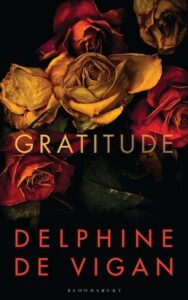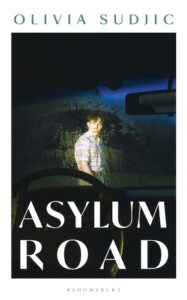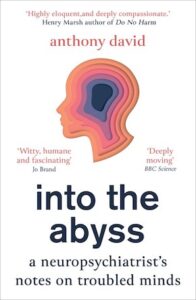Journeys of the mind
by Sonia Weir From the strange workings of the brain, life in a care home in France, to the privileged girls of a boarding school in America via a trip to Bosnia to face up to the past, there is plenty for you to lose yourself in as 2021 cranks into gear.
From the strange workings of the brain, life in a care home in France, to the privileged girls of a boarding school in America via a trip to Bosnia to face up to the past, there is plenty for you to lose yourself in as 2021 cranks into gear.
With Delphine de Vigan a cult literary sensation in France, winning numerous awards, I was excited to read her latest book Gratitude (Bloomsbury, 21 January). I had previously read and enjoyed her memoir Hold Back the Night, about growing up with her bipolar mother. Her novel tells the story of Michka who suffers from aphasia, a condition where you lose your memory and ability to talk. She is scared and is struggling with living on her own with no family to support her. Plagued by nightmares about her past and the endless sitting around at the care home she has recently been moved to (“waiting is a full-time job here”), she is determined to find a couple from her past before her words completely fail her. As her speech therapist Jérôme tries to help her come to terms with her past, she helps him rethink his relationship with his father. This is a short book and can easily be read in one sitting. Sparsely written, it is a tender examination of ageing, secrets and the power of words.
 Asylum Road (Bloomsbury, 21 January), Olivia Sudjic’s second novel, is a haunting and unsettling story that keeps you on edge. Anya escaped the Balkan war when she was a child, leaving her parents behind. She now has the security she craves with her English boyfriend Luke. The book starts on a road trip to France where Luke proposes. A visit to his parents in Cornwall makes her feel increasingly alienated, and triggers from the past are never far away. The security she has built up has begun to fade when she heads home to Bosnia, realising she needs to start taking control of her own narrative. Identity, alienation (the splitting up of Yugoslavia and Brexit) and trauma are powerfully explored as the story builds to its unflinching climax.
Asylum Road (Bloomsbury, 21 January), Olivia Sudjic’s second novel, is a haunting and unsettling story that keeps you on edge. Anya escaped the Balkan war when she was a child, leaving her parents behind. She now has the security she craves with her English boyfriend Luke. The book starts on a road trip to France where Luke proposes. A visit to his parents in Cornwall makes her feel increasingly alienated, and triggers from the past are never far away. The security she has built up has begun to fade when she heads home to Bosnia, realising she needs to start taking control of her own narrative. Identity, alienation (the splitting up of Yugoslavia and Brexit) and trauma are powerfully explored as the story builds to its unflinching climax.
It really brings back what it feels like to be a teenager, the confusion, the pressures of fitting in, of analysing every encounter…”
 All Girls by Emily Layden (John Murray, 18 February) is a coming-of-age novel set at Atwater, an all-girls liberal boarding school in Connecticut, that promises their students the world. It starts with the new students arriving to the revelation that a former student from a decade ago has accused a member of staff of rape. The students want to confront and discuss the topic of sexual assault and consent while the school wants to suppress and do as much damage control as they can to protect their reputation. This theme is the backdrop of the book as it follows a whole school year and features a cast of girls who are ambitious, studious and outspoken. Some of the descriptions of the girls’ experiences are quite painful to read. One girl is so full of anxiety that she is unable to eat and can’t stop picking her spots and pores until her face is a horrible mess. Another girl loses her virginity in a cornfield, and when she returns to her friends she is panic-stricken when she sees them all crowded round a phone. Her first thought is that she has been filmed. It really brings back what it feels like to be a teenager, the confusion, the pressures of fitting in, of analysing every encounter, and how social media as well as the intense atmosphere of an all-girls boarding house only heighten all these feelings. This is very much a #MeToo book and shows how much has changed over the past decade when it comes to awareness of and our attitudes towards sexual assault, subjugation and consent. These young girls are looking for protection from an institution that is more interested in protecting itself. This timely read has already been optioned by HBO.
All Girls by Emily Layden (John Murray, 18 February) is a coming-of-age novel set at Atwater, an all-girls liberal boarding school in Connecticut, that promises their students the world. It starts with the new students arriving to the revelation that a former student from a decade ago has accused a member of staff of rape. The students want to confront and discuss the topic of sexual assault and consent while the school wants to suppress and do as much damage control as they can to protect their reputation. This theme is the backdrop of the book as it follows a whole school year and features a cast of girls who are ambitious, studious and outspoken. Some of the descriptions of the girls’ experiences are quite painful to read. One girl is so full of anxiety that she is unable to eat and can’t stop picking her spots and pores until her face is a horrible mess. Another girl loses her virginity in a cornfield, and when she returns to her friends she is panic-stricken when she sees them all crowded round a phone. Her first thought is that she has been filmed. It really brings back what it feels like to be a teenager, the confusion, the pressures of fitting in, of analysing every encounter, and how social media as well as the intense atmosphere of an all-girls boarding house only heighten all these feelings. This is very much a #MeToo book and shows how much has changed over the past decade when it comes to awareness of and our attitudes towards sexual assault, subjugation and consent. These young girls are looking for protection from an institution that is more interested in protecting itself. This timely read has already been optioned by HBO.
 Just after finishing All Girls I heard about another book featuring the real-life murder of a student at Harvard back in 1969. We Keep the Dead Close by Becky Cooper (William Heinemann, 3 December) is a recent student’s compelling investigation into historical gender bias and institutional cover-up. Let’s hope with this new ‘woke’ generation, the power of these institutions to conceal their failings will be a thing of the past.
Just after finishing All Girls I heard about another book featuring the real-life murder of a student at Harvard back in 1969. We Keep the Dead Close by Becky Cooper (William Heinemann, 3 December) is a recent student’s compelling investigation into historical gender bias and institutional cover-up. Let’s hope with this new ‘woke’ generation, the power of these institutions to conceal their failings will be a thing of the past.
 Coming out in paperback on 6 February is Into the Abyss by Anthony David (Oneworld). Drawing on the author’s 40-year career as a cognitive neuropsychiatrist, each chapter documents a different case focusing on amongst other things trauma, depression, suicide and eating disorders. It’s a real insight and at times terrifying look into the workings of the brain – what is understood, and what is not. Why does a boy become paralysed after being told off by his parents? Why does a man commit suicide after coming to terms with his religious guilt? David is very honest about his naivety on some of the earliest patients he saw, and also about conditions where there are no clear answers, which not only frustrate him but also patients and their families. The stories are told with compassion, wit and warmth, which makes them so intriguing.
Coming out in paperback on 6 February is Into the Abyss by Anthony David (Oneworld). Drawing on the author’s 40-year career as a cognitive neuropsychiatrist, each chapter documents a different case focusing on amongst other things trauma, depression, suicide and eating disorders. It’s a real insight and at times terrifying look into the workings of the brain – what is understood, and what is not. Why does a boy become paralysed after being told off by his parents? Why does a man commit suicide after coming to terms with his religious guilt? David is very honest about his naivety on some of the earliest patients he saw, and also about conditions where there are no clear answers, which not only frustrate him but also patients and their families. The stories are told with compassion, wit and warmth, which makes them so intriguing.
Sonia Weir is a contributing editor to Bookanista. She started the Ultimate Reads and Recommendations Facebook group in December 2018, which now has over 500 members from all over the world. The group is inclusive and aimed at every reader, no matter the books, authors or genre.
Ultimate Reads and Recommendations
Instagram @soniaweir
Twitter @soniaweir

